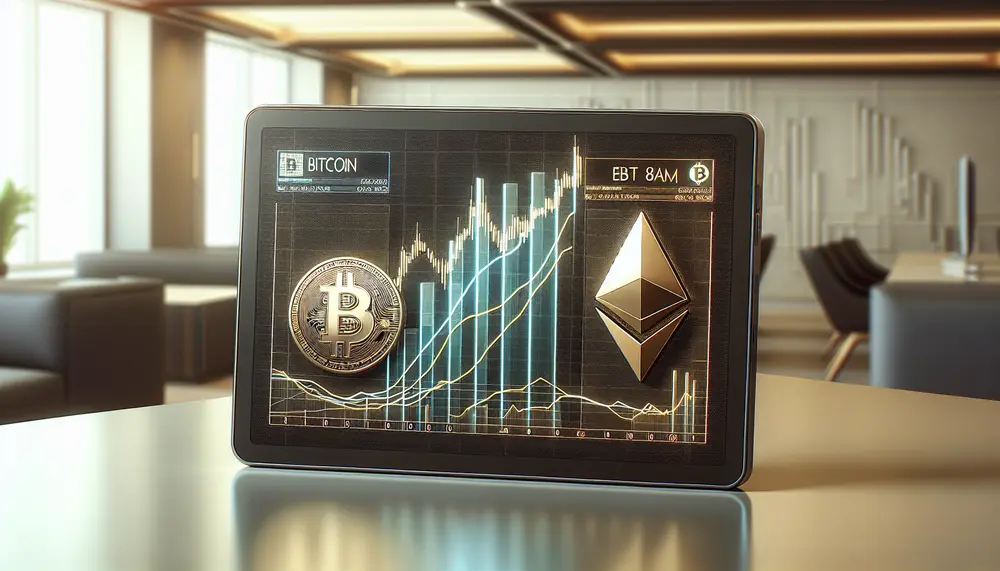Option Premium
Option Premium
Defining the Term: Option Premium
The Option Premium plays an integral role in the realm of options trading, including cryptocurrency options. It is a term beginner traders definitely need to get familiar with. But what does it mean exactly?
Understanding the Option Premium
The Option Premium goes beyond the surface-level definition. It is the price that an investor pays to buy an options contract. Whether dealing with traditional security options or cryptocurrency options like Bitcoin, Ether, or Litecoin options, the basic principle remains the same. The purchaser pays the Option Premium to the seller for the rights provided by the option contract.
The Components of an Option Premium
The Option Premium is not just a single amount but a sum of various individual components. These include the intrinsic value (the difference between the underlying asset's price and the strike price of the option) and time value (the value of the time remaining until the option's expiry). These elements together make up the Option Premium, each affecting its amount.
Factors Influencing the Option Premium
Several factors can influence the amount of an Option Premium. Fluctuations in the price of the underlying cryptocurrency, the volatility of the crypto market, and the time remaining until the option contract expires can all significantly impact the Option Premium. Understanding these factors can help traders make more informed decisions when dealing with Option Premiums in the cryptocurrency realm.
Option Premium: Essential to Cryptocurrency Options Trading
In conclusion, acknowledging the Option Premium's importance is essential when getting into cryptocurrency options trading. It not only serves as the cost of purchasing an option contract but also indicates the potential for profit and risk. Understanding the components and factors affecting the Option Premium can prove to be valuable for navigating the often volatile cryptocurrency market.
Blog Posts with the term: Option Premium

Understanding Bitcoin option skew is essential for traders as it reflects market sentiment and potential price movements, aiding in risk management and strategy optimization by analyzing implied volatility differences between calls and puts....

Deribit is a leading platform for Bitcoin options trading, offering deep liquidity, advanced analytics, and robust tools like the Option Wizard to cater to both novice and expert traders. Its focus on security, innovation, and user-friendly features makes it a...

The article explains the basics of option trading with Python, highlighting options as financial instruments and Python's suitability due to its simplicity and powerful libraries. It emphasizes learning Python programming, utilizing finance-specific libraries like NumPy, pandas, and matplotlib, automating tasks...

Bitcoin options on the CME provide a regulated and secure platform for traders to hedge positions or speculate on Bitcoin's price movements without directly owning it, offering benefits such as risk management, leverage, flexibility, cash settlement, and high liquidity. This...

Option trading involves contracts that give buyers the right to buy or sell an asset at a set price before expiration, with calls for buying and puts for selling. These options can be used for hedging, speculation, or leveraging positions...

Option trading on expiry day involves heightened volatility and the potential for significant gains or losses as traders make final decisions regarding their positions. It's a critical time with specific rules, timelines, and phenomena like 'pinning' affecting market behavior; understanding...

Bitcoin options are financial derivatives allowing the holder to buy or sell bitcoins at a predetermined price on a specific date, used by traders to hedge against volatility or speculate on future prices. Historical data in bitcoin options trading is...

Option trading is a versatile investment strategy that involves buying and selling options, which are contracts granting the right to buy or sell an asset at a set price within a specific period. The article covers fundamental concepts like call...

Option trading and intraday trading are two distinct methods with their own mechanics, benefits, and risks; option trading involves contracts for future buying or selling rights without obligation, while intraday trading focuses on quick profits from same-day stock trades. Understanding...

Option trading charges are fees incurred when buying or selling options, including commission, regulatory, exchange, clearing, and miscellaneous fees. Understanding these costs is crucial for traders to manage finances effectively and strategize to minimize expenses while maximizing potential profits....

Understanding and adhering to minimum capital requirements is crucial for sustainable options trading, as it helps manage risks associated with leverage and market volatility. The amount needed varies depending on the broker and trading strategy, ranging from $500 for basic...

Option trading and future trading are two distinct financial instruments for portfolio diversification, with options providing the right to trade without obligation and futures requiring a binding agreement. Options involve lower initial investment but limited risk exposure, while futures have...

Option trading involves contracts that give the buyer the right to buy or sell an asset at a set price before a certain date, without obligation. It's complex and risky but requires less initial investment than buying assets directly; its...

Option trading risk refers to the potential loss of capital due to unfavorable price movements in the options market, with factors such as type of option and volatility influencing this risk. Effective risk management is crucial for preserving trading capital...
